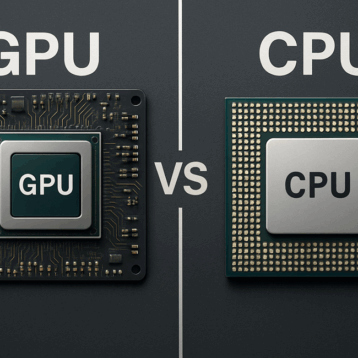
In a world where misinformation spreads rapidly through digital channels, distinguishing fact from fiction has never been more crucial. AI-powered fact-checking tools are revolutionizing the way you can verify information, providing reliable insights at your fingertips. These technologies analyze sources, cross-reference data, and highlight inconsistencies, making it easier for you to navigate complex narratives.
The rise of artificial intelligence in the realm of information verification means you have access to advanced tools that enhance critical thinking. By leveraging algorithms and machine learning, these fact-checkers cut through the noise of misleading headlines and sensational stories. You can now approach the news with a more analytical mindset, empowering yourself to make informed decisions.
As the digital landscape evolves, so does the need for reliable methods to discern truth. Engaging with AI-powered fact-checking allows you to combat misinformation effectively and participate in a more informed public discourse. With these resources, you are equipped to challenge dubious claims and contribute to a more transparent information ecosystem.
The Evolution and Impact of Fact-Checking
Fact-checking has transformed from traditional methods into advanced techniques driven by technology. Understanding its development and ongoing impact is crucial as you navigate information in today’s digital landscape.
Historical Context of Fact-Checking
Fact-checking has roots in journalism dating back to the early 20th century. The concept gained prominence with the rise of mass media, where inaccuracies in reporting could mislead large audiences.
Organizations such as The New York Times implemented rigorous editorial standards to ensure credibility. Over time, dedicated fact-checking entities emerged, like the debut of FactCheck.org in 2003, marking a pivotal moment.
These initial efforts laid the groundwork for current practices, highlighting the importance of accountability in the media. Historical shifts like the introduction of the internet accelerated the demand for reliable information.
Modern Developments in AI and Fact-Checking
In recent years, AI has revolutionized how fact-checking is conducted. Algorithms can quickly analyze vast amounts of data, making it possible to assess claims against verified sources almost instantaneously.
Advanced machine learning techniques allow for the identification of patterns in misinformation. Organizations are now using AI tools to automate parts of the fact-checking process, which enhances efficiency and accuracy.
Some platforms even offer real-time fact-checking during live events, such as political debates or news coverage. This real-time capability signifies a major advancement in keeping information accurate as it unfolds.
AI’s Role in Combating Misinformation
AI plays a crucial role in identifying and mitigating misinformation online. With the proliferation of social media, evaluating the authenticity of shared content has become increasingly complex.
AI systems can flag suspicious content by examining sources, context, and text patterns. They analyze data at scale, detecting trends or false narratives that might slip through human oversight.
Platforms integrate AI to provide users with contextual information about viral claims. This approach empowers users to make informed decisions about the content they consume and share.
Impact on Journalism and Public Discourse
The integration of fact-checking into journalism has profound implications for public discourse. It reinforces journalistic integrity and promotes transparency in reporting.
As audiences become more aware of fact-checking initiatives, their expectations have shifted. They demand higher standards from journalists and media organizations, leading to a more informed public.
Moreover, fact-checking fosters a culture of accountability, where misinformation is challenged. This cultural shift encourages critical thinking and more thoughtful engagement in discussions across various platforms.
Challenges and Ethical Considerations
Navigating the landscape of AI-powered fact-checking involves multiple challenges and ethical considerations. The complexities of technology, the potential for misinformation, ethical implications, and future advancements all play crucial roles in shaping this field.
Technological Limitations and Biases
AI systems are only as effective as the data they are trained on. Inaccurate, outdated, or biased data can lead to incorrect conclusions, impacting the reliability of AI-generated fact checks. These limitations can arise from insufficient data diversity, leading to systemic biases in the algorithms.
Moreover, the algorithms themselves are prone to errors. They may misinterpret context or nuance, particularly in complex narratives where human judgment is essential. Understanding these technological constraints is crucial for users who rely on AI for accurate information.
Misinformation and the Spread of Fake News
The digital age has accelerated the spread of misinformation, with social media platforms generating rapid dissemination of false claims. AI can play a dual role here, helping to identify and flag misinformation while also being used to generate sophisticated fake news.
You should remain vigilant about how effectively AI can differentiate between legitimate news and fabricated stories. This ongoing challenge requires continuous improvements in AI tools to ensure timely and accurate identification. Consequently, understanding the limitations of these tools is vital for consumers of information.
Ethics of AI in Fact-Checking
The use of AI in fact-checking raises ethical questions concerning accountability and transparency. When an AI system generates a fact-check, who is responsible for its accuracy? This ambiguity can lead to issues if users blindly trust AI-generated outputs without understanding the underlying processes.
Another ethical consideration is the potential for privacy violations. AI systems often analyze vast amounts of data, which can inadvertently lead to the exposure of sensitive information. Striking a balance between effective fact-checking and respecting user privacy is a significant concern for developers and users alike.
Future Directions and Innovations
Looking ahead, the landscape of AI-powered fact-checking is ripe for innovation. Advances in natural language processing and machine learning can lead to better context recognition, enhancing the accuracy of fact-checking.
Moreover, integrating tools like AI Detector can aid in distinguishing AI-generated content from human-created text. This capability becomes increasingly important in a world where authenticity is under constant threat. Continuous research and development will be essential for addressing the limitations of current systems while maximizing their potential in combating misinformation.










